Sunlight is a resource sadly lacking in Britain at the moment – after three days of buoyant sunshine some time back in April, summer seems to have packed its bags and left for friendlier climes – and the implications of the sun’s reluctance to shine are vastly further reaching than simply messing up our barbeques and taking the fun out of Pimms-o-clock.
With everything from skin cream to shampoos and toilet paper “vitamin infused” now, it’s easy to forget that vitamins aren’t just some mumbo-jumbo that marketers put on their packaging to sell more products. Vitamin deficiency can (and will, unless it’s addressed) lead to some seriously unpleasant side-effects – in the case of vitamin D deficiency; cognitive impairment, diabetes, serious disabilities such as rickets, cardiovascular disease and cancer [4].Cancer! Now that you’re good and scared, let’s talk about how you can tackle the deadly deficiency that could be gnawing on your internal organs at this very moment – but don’t panic. A vitamin D deficiency is as easy to resolve as picking up a pint of milk – so here’s how you can maximise your intake.
The Sunny Stuff
One of the best things and worst things about vitamin D is that it’s incredibly scarce in our natural diet – it can be found in egg yolks, cheese, fatty fish (such as salmon, mackerel and cod liver oil), beef liver, Portobello mushrooms and caviar – and that’s just about it. So why do I say that’s a good thing? Well, it means you’re not going to need to switch to some fad diet – food contributes just 2-4 µg of our vitamin D intake a day [3], and given that you need around 30 mcg, switching to egg yolk caviar for breakfast is probably going to do more harm than good. So don’t stress the food stuff too much – it’s all about the supplements, darling.
The Wellman Clinic has its own brand of Vitamin D3, cholecalciferol. Each gelatin capsule contains 1000iu (25mcg) dissolved in olive oil to aid optimal absorption. A container of 360 capsules is £29 plus p&p.
If you need further advice, the doctors at The Wellman Clinic can help.
[2] http://www.bmj.com/content/340/bmj.b5664
[4] http://www.webmd.com/diet/guide/vitamin-d-deficiency?page=2
[6] http://www.webmd.com/osteoporosis/features/the-truth-about-vitamin-d-can-you-get-too-much-vitamin-d



